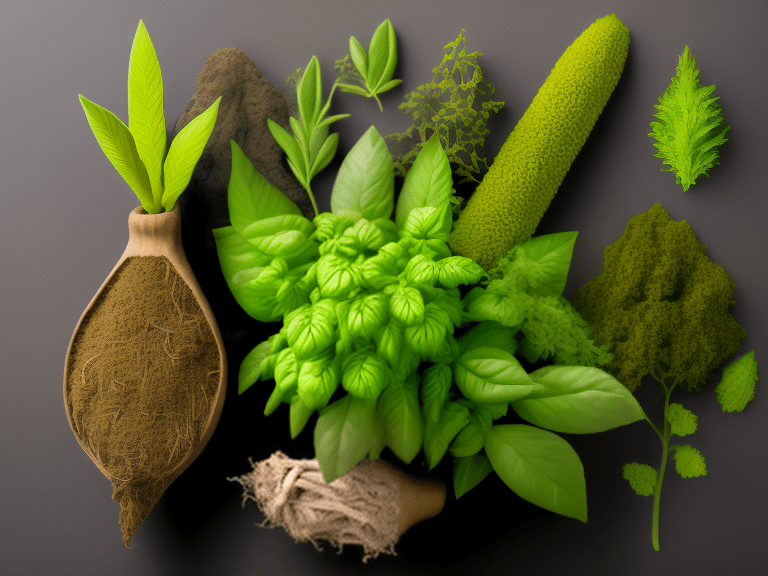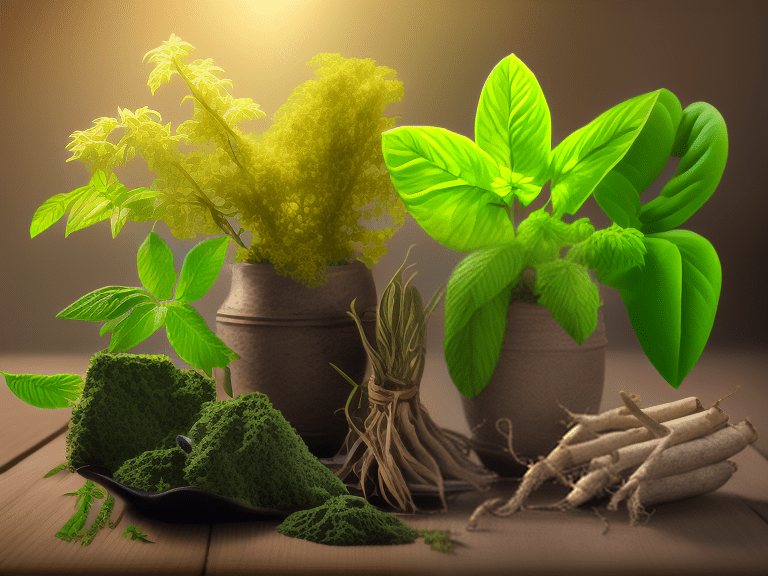
In the dense rainforests of Southeast Asia, Tongkat Ali, a plant known for its ability to support vitality, is found; while in the high-altitude regions of the Andes, Maca root thrives, known for its health benefits. These two plants are recognized for their historical use and the growing body of scientific studies that supports their role as natural supplements for improving men’s health. Tongkat Ali is linked to higher testosterone levels and better sexual function, and Maca root is known for its potential to boost energy and stabilize mood. The combination of traditional knowledge and scientific evidence highlights these natural ingredients, suggesting that they may work together to address a range of men’s health concerns. This conversation continues to detail how Tongkat Ali and Maca root may provide a comprehensive approach to men’s health issues.
Key Takeaways
- Eurycoma longifolia, also known as Tongkat Ali, has been traditionally used in Indonesian, Malaysian, and Vietnamese traditional medicine for various health benefits.
- It is used to treat post-partum recovery, fever, intestinal worms, dysentery, diarrhea, indigestion, jaundice, and as an aphrodisiac.
- Eurycoma longifolia is also believed to have antimalarial, antidiabetic, antimicrobial, and immunomodulation properties.
- Maca root, on the other hand, is mainly grown for consumption and is commonly used in various Peruvian dishes. It is also processed into flour for baking and can be fermented to produce beer.
Power Duo: Tongkat Ali & Maca Root for Men’s Health
Utilizing the combined benefits of Tongkat Ali and Maca Root may provide a significant improvement to men’s health, including testosterone production, libido, energy, muscle development, and stress management. Tongkat Ali, originating from Southeast Asia, is known for its capacity to naturally raise testosterone levels. This enhancement of the male hormone plays a vital role in sexual desire, muscle strength, and overall energy. The root is also recognized for its positive effects on physical performance and its historical use as an aphrodisiac and health tonic.
Maca Root, from the Andean region of Peru, offers a range of nutrients that contribute to stamina and endurance. Its adaptogenic properties assist the body in managing stress, and its bioactive ingredients have been linked to better sexual health and improved mood balance. The combination of Maca and Tongkat Ali targets various elements of men’s health.
Both roots have a tradition of use supported by scientific studies, suggesting that they not only address short-term issues but also support long-term health. For men looking for a natural advantage, the use of Tongkat Ali and Maca Root might be beneficial for both physical and mental health.
Boosting Your Engine: Tongkat Ali & Maca Root for Natural Testosterone Enhancement

Revving up the body’s natural hormone production, Tongkat Ali and Maca Root are recognized for their role in increasing testosterone levels and improving male vitality. These natural supplements are known not only for their ability to support libido and sexual function but also for their impact on overall men’s health.
- Tongkat Ali (Eurycoma longifolia)
- Contains the active compound eurycomanone
- Research indicates potential effects on:
- Erectile dysfunction
- Fertility and sperm count
- Athletic performance
- Maca Root (Lepidium meyenii)
- Grows in the Andes and has been used for generations
- Prepared in various ways:
- Roasted as a food
- Ground into flour for baking
- Fermented into a beverage
- Testosterone Support
- Both plants are associated with a natural increase in testosterone
- Reported benefits include:
- Higher energy levels
- Better mood and reduced stress
- Assistance with muscle growth and fat loss
Men searching for natural alternatives to synthetic hormones and medications may consider the combination of Tongkat Ali and Maca Root. They reflect a blend of historical practices and contemporary research, aiming to restore hormonal balance and improve male health.
Beyond the Gym: Maca Root’s Secrets for Adaptogenic Wellbeing
The adaptogenic qualities of Maca Root go beyond its use in physical exercise environments, providing a range of advantages such as increasing energy, reducing fatigue, and aiding in managing mood and stress, all of which are vital for maintaining a healthy immune system. Grown in the challenging environment of the Andean Mountains, this natural root has a history rooted in ancient traditions and is still relevant in current health practices.
Maca, a member of the cruciferous family, similar to broccoli and kale, contains a root filled with the components responsible for its adaptogenic benefits. As an adaptogen, Maca operates in a subtle yet effective manner, assisting the organism in adapting to stress and preserving a state of balance. Its benefits are not limited to physical stamina; the root’s effects on emotional regulation are significant for mental health, providing a natural method for achieving emotional stability.
Concerning immune health, Maca’s nutritional content, including vitamins, minerals, and bioactive elements, aids the body’s defense mechanisms. This helps individuals face daily health challenges, leading to a strong and ready immune response. Therefore, Maca Root is recognized not only by those focused on fitness but by anyone interested in a comprehensive approach to health and vitality.
From the Andes to Your Kitchen: Unveiling Maca Root’s Culinary Versatility

From the Andes to Your Kitchen: The Culinary Diversity of Maca Root
The adaptogenic qualities of Maca Root are significant for health, and its culinary diversity is equally impressive, introducing the unique flavors of the Andes to a variety of dishes worldwide. Maca root is often consumed in dried form and can be transformed into many edible forms to satisfy different tastes and dietary requirements.
- Recipes
- Traditional cooked dishes: Maca adds a distinctive nutty taste to empanadas and soups.
- Baked goods: When ground into flour, maca is an ingredient in bread, cakes, and pancakes.
- Contemporary cuisine: Chefs are using maca powder in a variety of new recipes, including energy bars and sophisticated sauces.
- Smoothies & Beverages
- Nutrient-rich smoothies: Maca powder, when mixed with fruits and vegetables, provides an energizing effect.
- Maca-enriched drinks: Products like the Andean Brewing Company’s beer and homemade maca chicha are deepened in flavor by the root.
- Desserts & Sweets
- Healthy options: Maca powder can improve the nutritional value of desserts while maintaining flavor.
- Sweet condiments: When combined with honey or syrup, maca produces tasty toppings for toast or pancakes.
- Specialty chocolates: Chocolatiers are incorporating maca to produce new and healthy chocolate varieties.
Nature’s Aphrodisiacs: Exploring Tongkat Ali & Maca Root for Enhanced Libido
Exploring the potential of nature’s bounty, Eurycoma longifolia, commonly known as Tongkat Ali, and the Peruvian maca root have received attention for their traditional use in boosting libido and supporting sexual function. Tongkat Ali, a respected herbal remedy from Southeast Asia, has been used for its reported effects on sexual desire and performance. The root’s bitter extract is often included in supplements aimed at supporting men’s vitality and stamina.
On the other side of the globe, the maca root, a cruciferous vegetable native to the Andes, has been grown and used for centuries as an aphrodisiac. This root is typically dried and processed into a powder that can be added to various foods and beverages. Its consumption is thought to have a positive impact on energy, mood, and sexual desire, making it a popular choice in the natural health community for those looking to support their intimate well-being.
Both Tongkat Ali and maca root have expanded from traditional medicine cabinets to the global marketplace, where they are recognized as natural options for men seeking to support their sexual health. Their increase in popularity is supported by a history of use and a growing interest in herbal remedies that contribute to a healthy and active libido.
Nature’s Aphrodisiacs: Exploring Tongkat Ali & Maca Root for Enhanced Libido

Investigating traditional aphrodisiacs, Tongkat Ali and maca root are notable for their reputed roles in improving libido and sexual function. These natural substances have been utilized for centuries. Tongkat Ali originates from Southeast Asia, while maca root is found in the high Andes of Peru. Their influence on men’s health is noteworthy, particularly concerning sexual desire, intimacy, and issues such as erectile dysfunction.
- Tongkat Ali (Eurycoma longifolia):
- Historical Uses: Consumed for general health, as an aphrodisiac, and to treat various conditions including fever and indigestion.
- Contemporary Uses: Included in supplements aimed at sexual health, energy improvement, and also in some energy drinks.
- Research Findings: Suggested to possess antimalarial, antidiabetic, and immunomodulatory properties.
- Maca root (Lepidium meyenii):
- Traditional Consumption: Historically prepared and included in dishes such as mazamorra and used to brew beer.
- Nutritional Content: Offered as a powder for baking or in a gelatinized form for improved digestion.
- Cultural Importance: Grown in the Andean region for thousands of years and historically exchanged for tropical food items.
Tongkat Ali and maca root provide not only a significant historical background but also a potential natural option for improving men’s health and vitality.
Supercharge Your Workout: How Tongkat Ali & Maca Root Can Optimize Athletic Performance
Athletes looking to improve their physical performance may consider Tongkat Ali and Maca root as options to aid in muscle recovery, boost endurance, and increase stamina. Tongkat Ali, a herbal plant from Southeast Asia, is traditionally used for various ailments and is now recognized in the fitness community for its potential to promote muscle strength and reduce fatigue. The compounds in the plant are thought to help in boosting the body’s production of testosterone, which plays a role in muscle growth and recovery.
Maca root, primarily cultivated in the Andes, is a natural supplement gaining attention among athletes. Its richness in nutrients, including complex carbohydrates and proteins, provides energy that is beneficial for intense exercise sessions. Maca is also a source of essential minerals and amino acids that contribute to muscle repair and optimal physical performance.
Adding these supplements to a well-rounded diet could assist athletes in quicker recovery and better performance. The adaptogenic qualities of these roots may support the body’s ability to transport oxygen, which can lead to improved endurance. Although research continues, current evidence suggests that Tongkat Ali and Maca root could be effective natural options for athletes aiming to improve their exercise routines.
Building a Better You: A Holistic Approach to Men’s Health with Tongkat Ali & Maca Root

Incorporating Tongkat Ali and Maca Root into one’s lifestyle can significantly improve men’s holistic health, addressing not just physical but also mental wellbeing. These natural herbs have been traditionally used in Southeast Asia and the Andes for their health benefits. As modern research progresses, a more detailed understanding of their potential is developing.
- Tongkat Ali: Traditional Uses & Modern Advantages
- Post-Partum Recovery: Traditionally used to aid recovery after childbirth.
- Vitality & Sexual Health: Considered to act as an aphrodisiac and improve sexual function.
- Overall Wellbeing: Promoted for its ability to boost energy, improve blood circulation, reduce stress, and aid in fat loss.
- Maca Root: A Nutritional Powerhouse
- Dietary Versatility: Consumed in various forms such as porridge, soups, and beverages.
- Holistic Health: Used for its nutritious properties and potential to improve sleep quality and balance diet.
- Cultural Significance: A fundamental component in Andean culture with historical trade value.
Sustainable Sourcing: Choosing Ethical Tongkat Ali & Maca Root Supplements
With concerns about environmental impact and ethical standards growing, it is vital to address the sustainability of sourcing practices for Tongkat Ali and Maca Root supplements. The increased demand for these botanicals globally necessitates responsible cultivation to preserve their availability for future use.
Tongkat Ali, from Southeast Asia, faces risks from excessive harvesting. Sourcing sustainably means following organic farming methods that prevent deforestation and protect ecosystems, allowing the species to regenerate and support diverse wildlife. In the Andes of Peru, Maca Root cultivation must proceed cautiously due to its rising popularity, which has raised issues regarding soil degradation and treatment of local populations. Ethical sourcing requires adherence to fair trade principles, ensuring just compensation for farmers and decent working conditions.
Customers can verify responsible sourcing through certifications and quality controls on supplement packaging. These certifications include organic standards confirming the absence of harmful agrochemicals, and fair trade endorsements affirming the fair treatment of laborers and contributions to community development. Selecting Tongkat Ali and Maca Root supplements from suppliers who are dedicated to these practices allows consumers to foster a supply chain that respects the environment and supports human welfare.
Beyond the Hype: Understanding the Side Effects and Contraindications of Tongkat Ali & Maca Root
Beyond the Hype: Understanding the Side Effects and Contraindications of Tongkat Ali & Maca Root
While responsibly sourced Tongkat Ali and Maca Root supplements are beneficial for promoting sustainability, it’s also necessary to consider the potential side effects and contraindications associated with their use. Consumers should be well-informed about the possible risks to ensure responsible consumption and to prevent adverse effects.
- Tongkat Ali Side Effects
- Insomnia and restlessness due to its stimulant properties
- Irritability and increased aggression in some individuals
- Digestive discomfort, including nausea and diarrhea at high doses
- Maca Root Considerations
- Hormonal changes, as it may affect hormone levels
- Potential to exacerbate symptoms of thyroid disease
- Allergic reactions, which, though uncommon, can include hives or difficulty breathing
- Contraindications
- Pregnant and breastfeeding women are generally advised to avoid use
- Individuals with hormone-sensitive conditions, such as breast cancer or prostate cancer
- Those on medications for blood pressure or blood thinners, due to potential interactions
